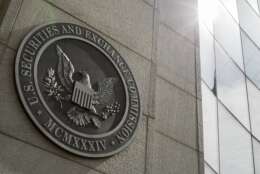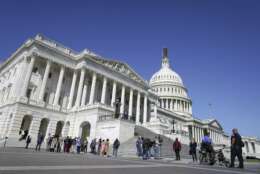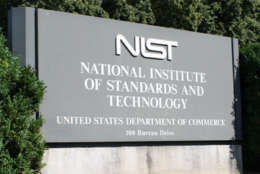Cybersecurity
-
The ability to automatically monitor for suspicious activity is also critical. Thanks to SBOMs, organizations can look at the specific technology they have deployed and determine what controls they need to put in place to mitigate potential attacks.
November 08, 2023 -
Growing numbers of federal employees are about to come under what's known as continuous vetting. Public databases automatically monitored by security officials to make sure you haven't been criminally charged or suddenly incurred large debt. Those with national security clearance are mostly under continuous vetting already. Now the Office of Personnel Management plans to expand that to feds with so-called non-sensitive public trust positions. How should agencies prepare? How should you prepare? For insight, Federal Drive Host Tom Temin spoke with the managing partner of the Tully Rinckey law firm, Dan Meyer.
November 08, 2023 -
Now that several agencies have special hiring authorities, a forthcoming proposal aims to bring 'equity' to the cyber recruiting landscape.
November 07, 2023 -
In today's Federal Newscast: The GSA is pouring $2 billion into sustainable construction projects. Data brokers are selling sensitive information like health and financial data of current and former military personnel. And Jane Rathbun is losing her "acting" title as the Navy Department's chief information officer.
November 07, 2023 -
Jeff Rezmovic, the nominee to serve as DHS CFO, wants to get the department's financial management off GAO's high-risk list once and for all.
November 02, 2023 -
DHS plans to use its own approach for evaluating contractor cybersecurity rather than adopting the Pentagon's CMMC program.
November 01, 2023 -
In today's Federal Newscast: The SEC is suing SolarWinds and its chief information security officer for "defrauding investors." The Pentagon prepares to launch an artificial intelligence pilot program. And spending on classified intelligence activities has taken a big jump to nearly $100 billion.
November 01, 2023 -
There is now more cyber guidance than ever for the companies that do business with the government. You can also expect even more when it comes to other new technologies, like artificial intelligence. Congress seems to be back up and running, and there is business to attend to. To start with, reauthorizing a major component of the Homeland Security Department, and also funding the rest of the government. For analysis, Federal Drive Executive Eric White spoke with Stephanie Kostro, Executive Vice President at the Professional Services Council.
October 31, 2023 -
In the fierce competition for cyber talent, a new study shows why agencies will need to develop innovative recruiting and retention programs, while also expanding pathways into the cyber workforce.
October 31, 2023 -
It’s never just one strategy, tactic or technology when it comes to cybersecurity. It’s a constant evolution that must simultaneously include investments in people, policy and tech. Get pointers from CISA, DARPA, IRS, ONCD and OPM in our new ebook.
October 30, 2023 -
Chris Cleary, the Department of the Navy’s principal cyber advisor, is most proud of his work around the Navy’s cyberspace superiority vision and work to better protect operational technology.
October 30, 2023 -
You scarcely hear the word "software" these days, without it being followed by "supply chain." One of the biggest topics in cybersecurity is how to make sure the thousands of pieces of a software program add up to something safe.
October 27, 2023 -
Drew Myklegard, the deputy federal chief information officer, said the draft memo to update FedRAMP creates a new oversight board and promotes agencies from similar sectors working together approve cloud services.
October 27, 2023 -
Gabe Camarillo, the undersecretary of the Army, said to create a culture of continuous improvement, the Army needs to institutionalize how it buys, develops and continually improve its applications.
October 26, 2023 -
CISA now has the equivalent of a perpetual "no-knock warrant" to probe the networks of federal agencies for major cyber vulnerabilities.
October 26, 2023















